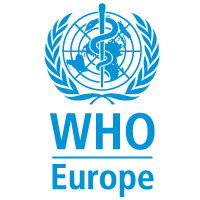
Statement by Dr Hans Henri P. Kluge, WHO Regional Director for Europe
4 May 2022
Commissioner Kyriakides, esteemed colleagues and friends,
A warm welcome to today’s long-awaited meeting, which has only grown in relevance since we launched the Pan-European Mental Health Coalition last September.
Our Region is undergoing extensive upheaval and change.
A pandemic has thrown an unprecedented spotlight on mental health. An armed conflict is profoundly affecting the mental health of millions of people.
Ten weeks of war in Ukraine have led to incalculable uncertainty, insecurity, grief and loss. Nearly 190 attacks on health care in the country to date are depriving countless people of hope and access to services. Food insecurity and safety concerns are rampant in Ukraine and neighbouring countries. Hostilities are causing immeasurable loss of lives and livelihoods, forced displacement, and family separation.
Ukraine’s mental health system, strengthened over several years following WHO’s special initiative on mental health, is already responding – through large-scale training of volunteers, promotion of self-care tools, and support to the most vulnerable in institutions across the war-torn country.
Countries neighbouring Ukraine are also facing a huge increase in demand for health – and mental health – services due to the large influx of refugees. As highlighted at the High-level Meeting on Health and Migration held in Istanbul, Turkey, in March this year, the mental health of migrants and refugees should be addressed through the mainstream mental health services of a country, which is what neighbouring countries are doing.
WHO/Europe has deployed experts in mental health and psychosocial support to work with national authorities to respond to the mental health needs of Ukrainians who have fled their country.
At the same time, some things in our Region, unfortunately, have not changed.
- Mental health conditions remain highly prevalent. Depression and anxiety continue to be among the leading contributors to the disease burden. COVID-19 has worsened this situation further.
- Nearly 130 000 people die by suicide every year in our Region – an unacceptably high number.
- A fraction of those who need it receive adequate treatment or care for mental health conditions. Preventive efforts are lacking, and stigma is rampant.
The European Mental Health Coalition was established to change this – to take action at every level to meet unaddressed mental health needs in our Region.
Universal health coverage, with mental health at its core, is the key to better public health outcomes. This is why the Mental Health Coalition is 1 of the 4 flagship initiatives of the European Programme of Work, our overarching strategy for health and well-being across the WHO European Region, agreed by every Member State.
But mental health is a pervasive, complex area that health systems cannot address alone. To make progress:
- We need educational organizations, academia, labour organizations, and local and international nongovernmental organizations to create and enforce policy and systemic structures – together.
- We need individuals with expertise and individuals with lived experience of mental health conditions to champion, guide and inform reforms in every segment of society.
- We need data based on shared indicators to measure the scope of every single issue and the efforts to address them.
The working packages and processes of the Coalition that we start drafting today will ensure that all our Member States, from those most resourced to those least, will be able to best meet the needs of their populations and give everyone the opportunity to flourish.
Let me once again leave you with the pertinent words of Aimee-Louise Carton, a young mental health advocate who spoke at the launch of the Mental Health Coalition last year: “Each of you have a decision to make today. How far are you willing to go to support the next generation? Your decisions in the coming years are what matters. You could be the reason a young person, standing alone on a bridge, survives and learns to love to live again.”
I will follow your discussions today closely – they are of such immense importance to all of us.
Thank you.

